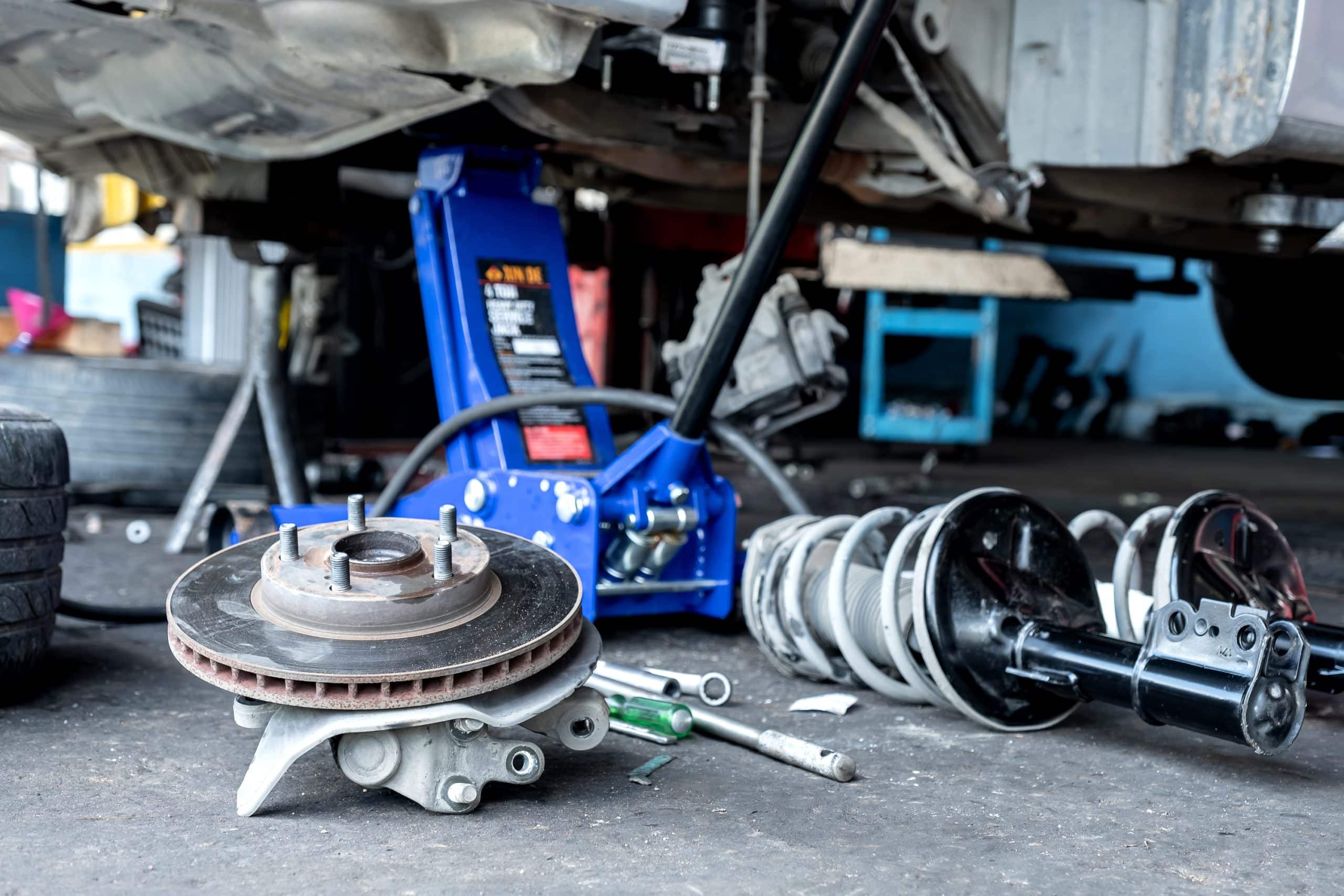As car enthusiasts, you might be pondering whether it’s possible to acquire a more enhanced ride by modifying the suspension of your Toyota Prius. You’ll be thrilled to find out that you can indeed convert your Prius’s suspension to coilovers for improved handling. For those of you who are new to the term, coilovers are a type of automobile suspension device. They consist of a shock absorber with a coil spring encircling it. The shock absorber and spring are assembled as a unit before installation, and they are replaced as a unit when the shock absorber has leaked.
What Does a Suspension Do?
Before we delve deeper into the process of conversion, let’s briefly discuss the function of a car’s suspension. The suspension of a car serves primarily two purposes. Firstly, it ensures that the car’s handling and stability are at their peak, allowing you to maintain control of the vehicle. Secondly, it provides comfort for passengers to prevent them from feeling every bump and vibration on the road.
Avez-vous vu cela : How to Properly Install a Front Tow Hook on a BMW Z4 for Track Days?
In terms of the Toyota Prius, the factory-installed suspension is designed for comfort over performance. It uses a type of suspension known as MacPherson struts. While this type of suspension is excellent for absorbing bumps, it might not offer the level of handling and performance that some car enthusiasts crave.
Why Convert to Coilovers?
So, you may wonder, why should you consider switching to coilovers? Well, the primary benefit lies in the improved handling and performance. Coilovers provide a more responsive ride, greater adjustment capabilities, and better handling characteristics than traditional spring and shock combinations.
A lire également : Can a Carbon Fiber Driveshaft Improve the Acceleration of a Dodge Challenger?
However, the biggest advantage of a coilover system is adjustability. With coilovers, you can adjust the height of your car to your liking. It involves changing the pre-load on the spring to either raise or lower the car. In addition, some coilover systems also allow for adjustments in damping. This feature can tailor how the suspension reacts to the road surface, allowing for a stiffer or smoother ride depending on your preference.
Conversion Process
Converting your Toyota Prius’s suspension to coilovers isn’t as daunting as it sounds, provided you have the right kit. The coilover kit will typically include a set of coilovers for the front and rear, as well as all the essential hardware for installation.
Firstly, you will need to replace the front struts with the coilovers. After removing the existing struts, the coilover assembly can be bolted in the same mounting points. The process for the rear is a little different. Here, you need to remove both the existing shocks and springs before installing the coilovers.
One important aspect to remember during this process is alignment. After installing coilovers, it’s critical to get an alignment done by a professional. This step ensures that the car tracks straight and prevents premature tire wear.
Final Thoughts on Coilover Conversion
In conclusion, if you’re looking to improve the handling and performance of your Toyota Prius, converting the suspension to coilovers is a viable option. By switching to a coilover setup, you can enjoy a more adjustable, responsive ride. It’s also worth noting that this modification isn’t just for car enthusiasts. Even if you’re just a regular Toyota Prius owner who wants a smoother ride, the benefits of coilovers might be worth considering.
Just keep in mind that any modification to your car’s suspension should be done with care and preferably by a professional. Furthermore, it’s crucial to understand that altering your vehicle’s suspension system might affect its warranty, so it’s worth checking with a Toyota representative before proceeding with the conversion.
Remember, as with any vehicle modification, safety should be your top priority. Always make sure to thoroughly research any modification before you proceed, and don’t hesitate to seek professional advice if you’re unsure about any part of the conversion process.
Choosing the Right Coilover Kit for Your Toyota Prius
Before you embark on this modification journey, it’s crucial to select the right coilover kit for your Toyota Prius. There are several brands to choose from, including Function Form, Megan Racing, and Kontrol Pro. Each of these brands offers coilover kits designed specifically for various Prius models, including the popular Prius ZVW.
When choosing a coilover kit, there are a few essential factors to consider. First, you’ll want to think about the spring rates. Spring rate refers to the amount of weight needed to compress the spring by a certain distance. The higher the spring rate, the stiffer the ride will be. Therefore, if you’re looking for a smoother ride, you’ll want a coilover with a lower spring rate.
Another critical factor to consider is the ride height adjustment range. Different coilover kits offer varying amounts of adjustment, so you’ll want to choose one that allows you to achieve your desired ride height.
Finally, pay attention to whether the coilover kit includes camber plates. Camber plates allow you to adjust the angle of the wheels, which can improve handling and reduce tire wear.
When shopping for your coilover kit, make sure to consider the free shipping options that some suppliers might offer. This can significantly reduce the overall cost of your suspension system upgrade.
The Pros and Cons of Converting to Coilovers
Converting your Toyota Prius’s suspension system to coilovers has its benefits, but it also comes with some drawbacks. It’s important to weigh these pros and cons before deciding to proceed with the modification.
On the plus side, coilovers offer a significant enhancement in terms of vehicle handling and performance. This is because they allow for precise adjustments to the vehicle’s ride height, spring rates, and damping. They can also provide a more aggressive appearance, which many car enthusiasts appreciate.
However, it’s important to remember that coilovers generally deliver a firmer ride compared to stock suspensions. While some drivers prefer this, others might find it less comfortable, especially on long drives or over rough roads.
Another possible drawback to consider is the impact on your car’s warranty. Modifying your suspension system could potentially void your warranty, so it’s advisable to confirm this with a Toyota representative before proceeding.
A coilover conversion also requires a certain level of mechanical skill. It’s not a job for the average DIYer. Installing coilovers typically involves removing the stock suspension, installing the new coilovers, and then having the vehicle professionally aligned. If you’re not confident in your abilities, it may be best to have this job done by a professional.
Conclusion
In conclusion, converting the suspension of your Toyota Prius to coilovers can certainly improve its handling and performance. However, this modification is not without its challenges. From choosing the right coilover kit to understanding the impact of spring rates and ride height adjustments, it’s a decision that requires careful consideration.
If you’re a car enthusiast looking for a more engaged driving experience, or a regular Prius owner who simply desires a smoother ride, a coilover conversion could be an exciting project. Just remember to conduct thorough research, seek professional advice when needed, and prioritize safety at all times.
In the end, whether you choose to switch to coilovers or stick with your current suspension system, the important thing is that you enjoy your Toyota Prius and its ride, no matter what kind of terrain you’re traversing.






